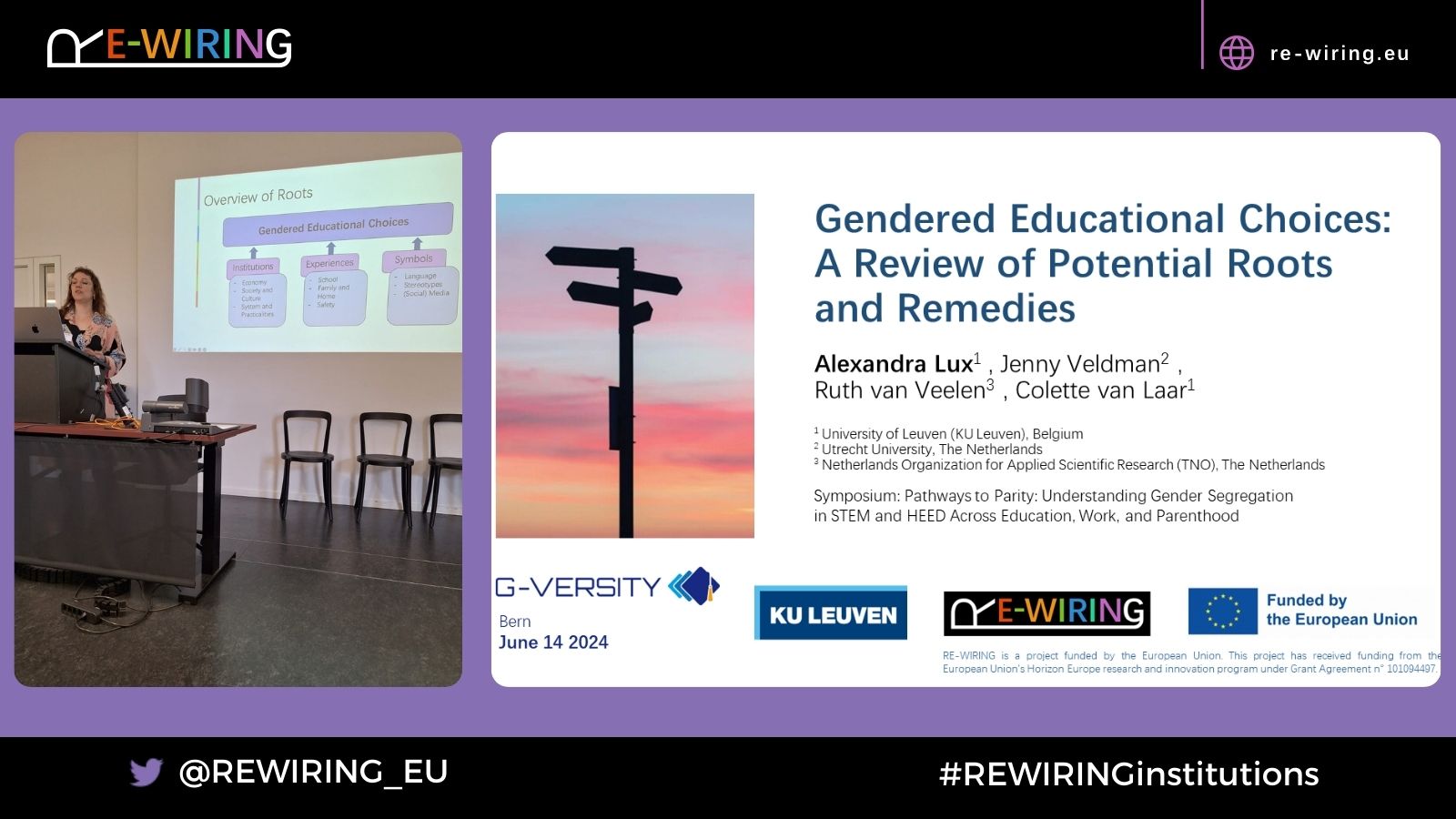The European Research and Training Network G-VERSITY – Achieving Gender Diversity, an interdisciplinary and intersectoral initiative, recently concluded its capstone conference in Bern, Switzerland.
The capstone G-VERSITY conference, which took place from June 12 to 14, provided a platform for exchanging the latest theoretical and practical insights on achieving gender diversity. The event was organized around four central themes that have been pivotal to the G-VERSITY project:
- Gendered Pathways and Career Choices: Examining how societal norms and education influence career trajectories for different genders.
- Gender Diversity at Work: Investigating strategies and practices that promote gender diversity in various professional environments.
- Intersectional and Postcolonial Perspectives on Gender and Race: Exploring the intersections of gender with race, ethnicity, and other social categories.
- Research Beyond the Gender Binary and Heteronormativity: Challenging traditional binary and heteronormative frameworks in gender research.
Attendees included researchers, policymakers, and representatives from various industries, all dedicated to advancing gender diversity. The conference highlighted the network’s significant contributions and laid the groundwork for future initiatives aimed at fostering inclusive and equitable workplaces across Europe.
Our colleague, Dr. Alexandra Lux, from the RE-WIRING project, participated in the conference with a talk titled “Gendered Educational Choices: A Review of Potential Roots and Remedies.” This presentation was part of a symposium with Dr. Katharina Block, Onur Sahin, Esmée Schregardus, and Dr. Jenny Veldman. Dr. Lux’s talk was based on her work on WP3 on De-biasing Education.
The presentation reviewed why students tend to make educational choices in line with gender stereotypes and suggested ways to address these biases. For instance, despite evidence showing no significant difference in math ability between girls and boys (Kim et al., 2023; Reardon et al., 2019), girls are less likely to choose courses like physics or computer science, resulting in an underrepresentation of women in STEM fields and men in HEED fields. The talk highlighted factors contributing to these gendered choices, such as societal influences from teachers, parents, media portrayals, and textbook images. It also reviewed interventions aimed at reducing these biases, including gender-conscious career education, enhancing competency beliefs, counseling, role models, and envisioning possible selves. The review incorporated intersectional perspectives from both WEIRD/Global North and non-WEIRD/Global South contexts, offering applied recommendations for policymakers and practitioners and suggesting future directions for intervention development.







Leave a Reply